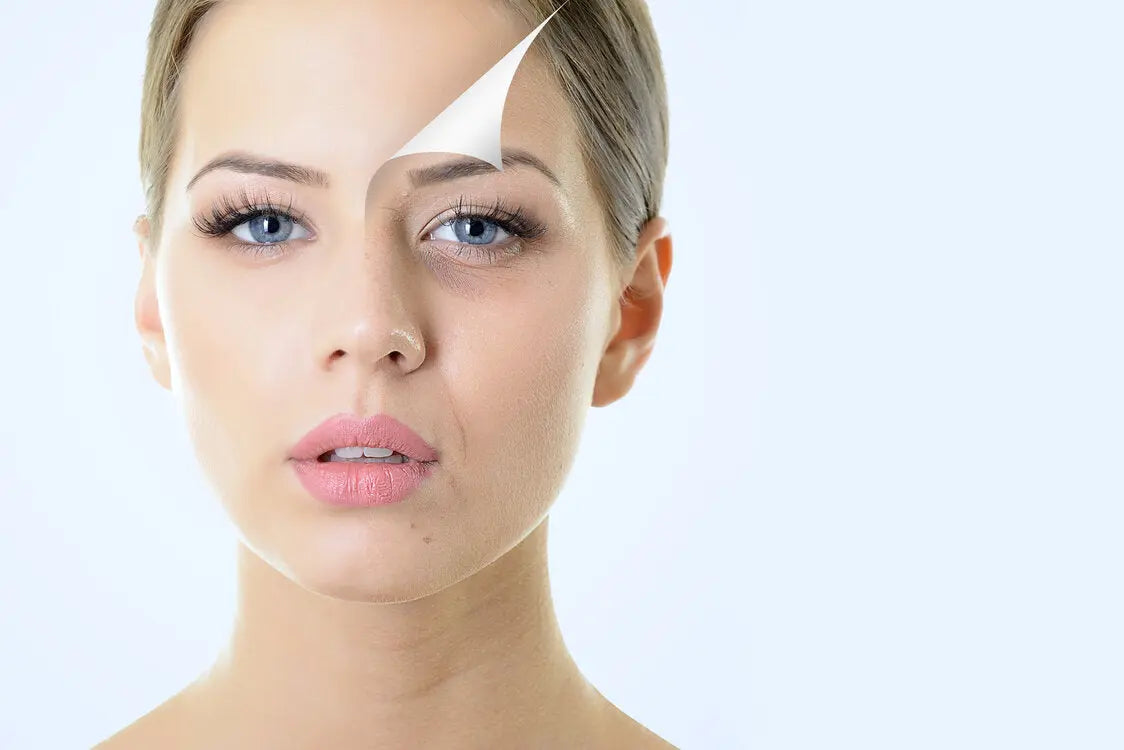Can We Prevent Skin Ageing? Here's What You Need To Know

Wrinkles, dull skin, pigmentation and sagging skin.
All things we wished wouldn’t happen to us.
What is it the main cause of skin changes overtime?
Is it our genetics? Is it time? Or is it something external?
80% of Skin Ageing is Caused by this..
Researchers have found that 80% of skin ageing is caused by the sun and the environment.1 You see, the sun causes your skin to form free radicals. The problem is that these free radicals bind to the skin and blocks it from making collagen and elastin which is vital for healthy looking skin. Some of the signs of ageing you may notice are dullness, uneven skin tone, thinning and wrinkles.
Here are some of the ways to slow the ageing process.
Get Serious About SPF
Look for sunscreen that contains zinc oxide or titanium dioxide as one of the ingredients on the list. These ingredients are much better at preventing UVA rays. And UVA rays are the main cause of skin ageing.
Sunscreen alone only blocks 55% of free radicals caused by UV exposure.2 And certain sunscreens make free radicals when it comes in contact with your skin.
Be Selective About Skincare Ingredients
To further help prevent damage from free radicals, use a skincare that contains a high amount of antioxidants.
Topical antioxidants “hook” and neutralise free radicals before it has a chance to destroy your skin. Simply put, antioxidants act like a shield. When formulated properly, the moisturiser creates a reservoir of antioxidants that protects your skin over a period of time. It can guard against and even reverse damage caused by free radicals for healthy and brighter skin.
On top of that, using the right types of antioxidants can sometimes trigger your skin to produce a substance called hyaluronic acid, a moisture compound.
Hyaluronic acid holds water and keeps your skin lubricated and moist preventing dull skin that comes with ageing.

Consider Taking Internal Antioxidants
Several reports have indicated that vitamin C levels are lower in aged or photodamaged skin.3
Vitamin C promotes collagen formation, neutralises free radicals therefore reducing skin damage caused by the sun and also helps to reduce skin pigmentation.
References:
- Zhang S, et al. Fighting against skin aging: The way from bench to bedside. Cell transplant 2018: 27(5): 729-738.
- Telang PS. Vitamin C in Dermatology. Indian Dermatol Online J 2013: 4(2):143-6.
-
Pullar JM, et al. The roles of vitamin C in skin health. Nutrients 2017: 9(8): 866.





Leave a comment